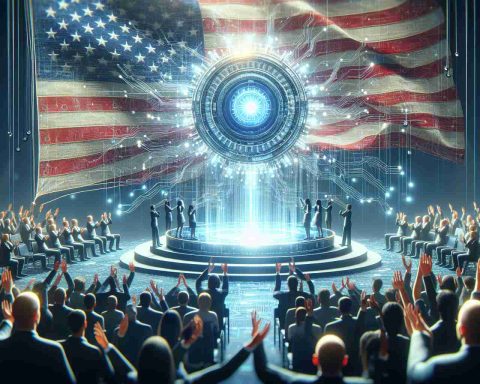Senator JD Vance recently expressed his disapproval of Taylor Swift’s political stance, criticizing her as out of touch with everyday Americans. This reaction came after Swift revealed her support for Vice President Kamala Harris on social media. In a post shared shortly after the presidential debate, Swift praised Harris for her dedication to vital issues, reflecting her desire for leadership characterized by calmness rather than chaos.
During an interview with Fox News, Vance asserted that while Swift’s music might be appreciated by many, her opinions will likely not sway the political views of the average voter. He pointedly remarked that the singer seems unaware of the realities faced by the general populace.
The exchange didn’t end there; Harris’s campaign responded to Vance’s comments with a playful emoji, hinting at a light-hearted jab at previous remarks made by Donald Trump regarding wealth. Swift, for her part, clarified her position, firmly stating that she had never endorsed Trump. She highlighted recent misuse of artificial intelligence to promote false statements about her political views, emphasizing the necessity of transparency in today’s misinformation-laden climate.
Swift further elaborated on her voting criteria, detailing her research into Harris’s policies on critical issues such as LGBTQ+ rights and reproductive autonomy, while encouraging others, especially first-time voters, to ensure they are registered and informed ahead of the election.
Celebrity Endorsements Spark Political Tensions: A Closer Examination
The intersection of celebrity culture and political campaigns has grown increasingly contentious in recent years, with endorsements leading not only to heightened visibility but also to significant backlash. In the current political climate, celebrity endorsements are no longer just promotional; they can ignite fervent debates and partisan divisions. This article delves into the complexities surrounding this phenomenon, identifying key challenges and controversies, while also discussing its advantages and disadvantages.
What are the most significant questions surrounding celebrity endorsements in politics?
1. Do celebrity endorsements genuinely influence electoral outcomes?
While many assume that a celebrity’s support translates to increased voter turnout or sway, research shows mixed results. Some studies suggest that certain demographics, particularly younger voters, may be motivated by celebrity endorsements, while older voters may be less swayed.
2. How do politicians navigate the risks associated with celebrity endorsements?
Politicians often weigh the benefits of increased visibility against the potential alienation of voters who disagree with the celebrity’s views. For instance, while Taylor Swift’s endorsement of Harris may galvanize some voters, it might also repel others who view the endorsement as elitist.
3. What are the potential legal and ethical implications of celebrity involvement in politics?
* Issues arise concerning campaign finance laws and the transparency of endorsements. If a celebrity is perceived to be using their platform for ulterior motives, it could lead to public distrust in both the celebrity and the political figure they support.
Key challenges and controversies associated with celebrity endorsements
The backlash often stems from perceived disconnection between celebrities and the average voter. For example, figures like Senator JD Vance have expressed concerns that celebrities may not fully comprehend the socioeconomic struggles faced by many Americans. Moreover, the oversight of misinformation, especially through social media, complicates the trust placed in celebrity endorsers. Misleading narratives can easily gain traction, as seen in the controversy surrounding AI-generated misinformation about Taylor Swift’s political stance.
Advantages and disadvantages of celebrity endorsements
Advantages:
– Increased Visibility: Celebrities can attract media attention and bring issues to the forefront of public discussion, potentially educating voters.
– Engagement of Young Voters: By appealing to younger demographics who idolize these figures, campaigns can mobilize new voters to participate in elections.
Disadvantages:
– Perceived Elitism: Endorsements can lead to perceptions of disconnectedness, where voters feel that celebrities do not understand their daily struggles.
– Risks of Controversy: Endorsements can alienate potential supporters, especially if the celebrity’s views are polarizing. As seen in Vance’s comments about Swift, political tensions can escalate swiftly, creating societal divides.
In conclusion, the landscape of celebrity endorsements in politics is as complex as it is fascinating. Politicians and celebrities alike must navigate a delicate balance between influence and backlash, all while remaining aware of the ethical implications of their alliances. As we continue to witness the evolving relationship between celebrity culture and political endorsements, the consequences of these interactions will undoubtedly shape electoral landscapes for years to come.
For more insight into the role of celebrities in politics, visit Polling Report and explore various opinions and research on the topic.

















